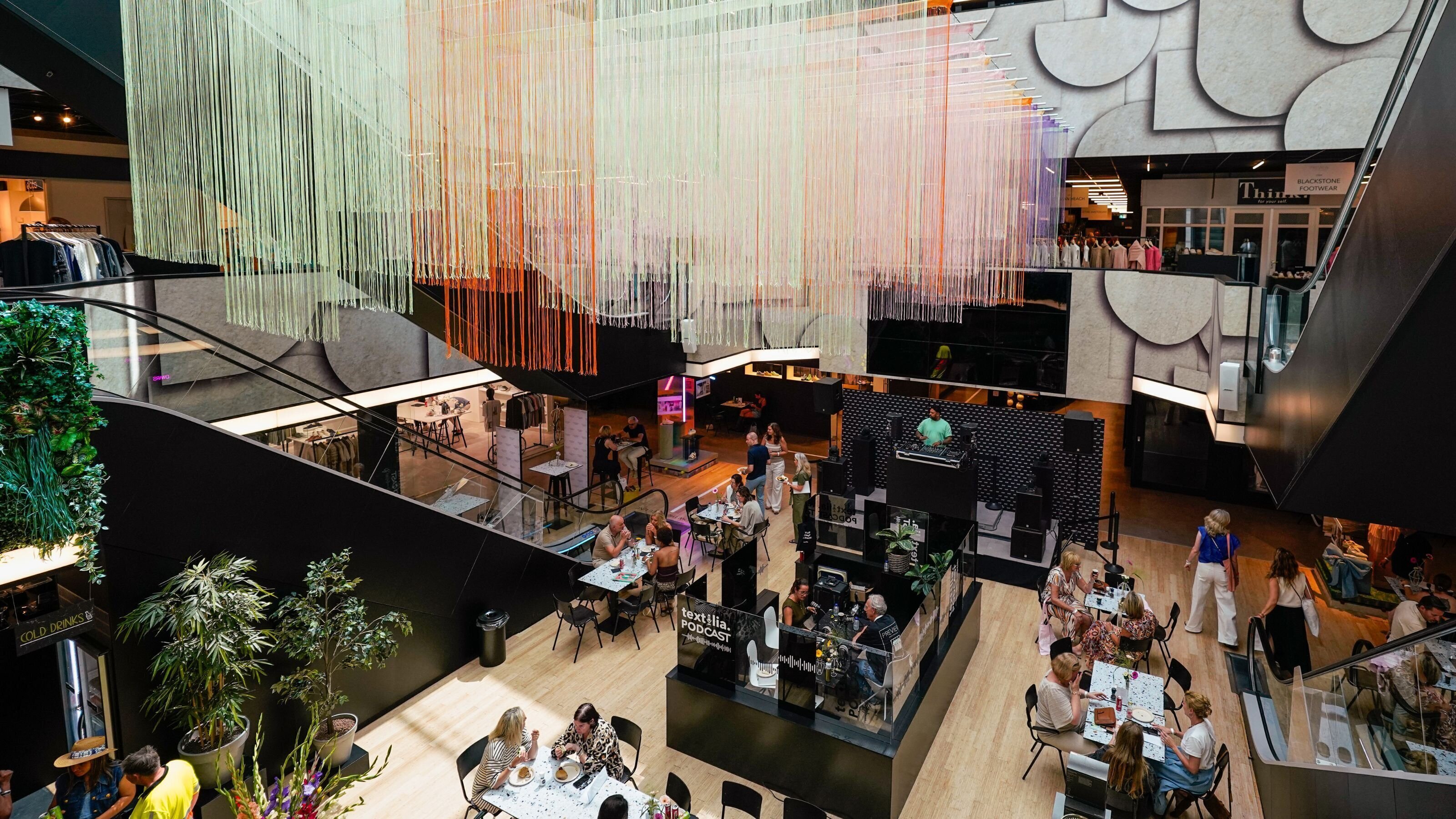During the Preview Days at CAST in Nieuwegein, Isolde Delanghe, Director of the Belgian trade organization Mode Unie, joined Textilia Talks for an inspiring conversation about the differences between the Belgian and Dutch markets, concerns about margins and purchasing power, and the importance of continuous movement in a changing retail landscape. Here’s a summary of the podcast.
For Isolde, it was her first time attending the Preview in Nieuwegein, and her enthusiasm was immediately evident. She called the concept inspiring and especially praised the focus on experience:
“What strikes me is how in the Netherlands you really focus on atmosphere and community. In Belgium, we still see a lot of fragmentation: retailers often buy directly from brands in their own showrooms, making a central meeting point like this less common. That makes it harder to create collective inspiration.”
She sees CAST as an example from which the Belgian sector can learn and hopes collaboration with existing initiatives such as Trade Mart in Brussels can be further strengthened: “Together you’re stronger. One plus one really makes three—if you do it right.”
Mode Unie: a Trade Organization
Delanghe is the Director of Mode Unie, a trade association representing independent fashion retailers in Belgium. In addition to lobbying at the Flemish, federal, and European levels, Mode Unie focuses strongly on practical support and professional development. The organization hosts around 25 networking events and training sessions each year and runs its own training institute. Notably, these training programs often take place directly on the shop floor.
“We bring trainers into the stores. It’s efficient and motivating. Employees are trained in their own work environment during opening hours. Customers see that the company invests in its team, and it boosts team spirit.”
According to Delanghe, many fashion entrepreneurs today are struggling to keep their heads above water. She notes that sales results this spring were disappointing despite the good weather. In her view, geopolitical uncertainty plays a role, as well as consumers’ perception that their purchasing power is under pressure. At the same time, she sees retailers going to great lengths to reach their customers, although it can be difficult to translate those efforts into tangible results.
Competition
Delanghe also points to the growing competition from international players, particularly when it comes to pricing strategies and discount periods. In Belgium, legislation in this area is much stricter than in the Netherlands.
“In Belgium, you can only sell at a loss during the official sales periods. But large foreign webshops often ignore those rules, and enforcement is difficult due to limited government capacity. That causes frustration among many shop owners who do play by the rules.”
Still, Delanghe doesn’t want the conversation to turn into mere complaints. She stresses that change also brings opportunities. She observes that Belgian retailers are becoming more flexible in their purchasing policies and paying greater attention to figures and margins. Whereas in the past they remained loyal to certain brands for years, they now switch more quickly and evaluate more critically.
“The market is changing, and that requires adaptability. Fortunately, many Belgian entrepreneurs are pragmatic and resilient. They pick and choose from new trends what works for their customers without getting carried away by every hype.”
She concludes with a call to step outside the comfort zone:
“We take retailers to the Netherlands to inspire them. Because it’s only when you step out of your daily environment that you can truly see where growth is possible. And in the end, we all benefit from that.”
Listen to the PodCAST
Source: Textilia




